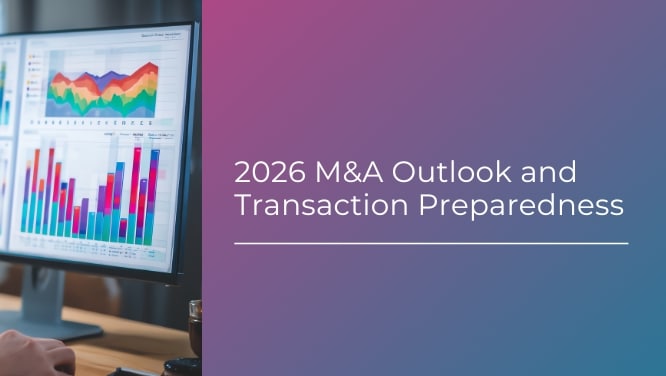ADA Accessibility Requirements: How to Know if Your Website is in Compliance

- Matt McKinney
- |
- November 17, 2020
Media coverage by major outlets like Fortune and The Wall Street Journal highlight a recent spike in lawsuits filed against companies for operating websites or hosted services that allegedly fail to comply with the accessibility requirements of the Americans with Disabilities Act (ADA).
Defendants in these cases include Beyonce’s entertainment goliath, mom-and-pop eyeglass retailers, online SaaS platforms, and online retailers. The KO team wants to provide a foundational understanding of what the ADA requires of businesses with websites, along with steps businesses can take to minimize or hopefully eliminate the risk that may exist from ADA website accessibility requirements.
ADA Accessibility Compliance Background
The ADA, passed in 1990, is a federal civil rights law that prohibits discrimination based on disability in many circumstances, including employment decisions, public entities’ operations, and public accommodations’ operations. This article covers the applicability of the ADA to companies’ websites and hosted services, and steps companies can take to comply with current guidance and best practices.
While the list of possible ADA-defined disabilities is long, for the purposes of this article, we are focusing on impairments to sight, hearing, and performing manual tasks (e.g., using a keyboard or mouse). A public accommodation is a privately-operated facility whose operations affect commerce, or fall into twelve enumerated categories, that include, for example, places of lodging and places of recreation. A key (and unsettled) question is whether websites are public accommodations. Courts are divided on this question.
ADA Accessibility Applicability to Websites
The Internet as we know it today did not exist in 1990, and as a result the ADA does not specifically consider whether websites, hosted services, mobile apps, or other emerging technologies and SaaS platforms are public accommodations. While the ADA itself does not explicitly state that the ADA applies to websites, the Justice Department (the federal department charged with enforcing the ADA) has provided guidance indicating its view that the ADA does apply to websites, and we can review examples of plaintiff’s claims to understand how the ADA may apply and be violated.
One common claim brought by visually impaired plaintiffs alleges that the ADA is violated because the defendant’s website is equally accessible by the visually impaired because the website is not compatible with screen-reading software that converts the written word on a website to audio so the individual can more easily navigate the website. Another alleges that the ADA is violated because the website is not easily navigated without a mouse, which inhibits access for those who are unable to use a mouse.
Not surprisingly, there have been multiple lawsuits over the years regarding the Justice Department’s determination that the ADA applies to websites. Unfortunately, federal courts have come to varying conclusions: some find the ADA does apply, and some do not. The result of this so-called circuit split in the courts is that companies are left with muddied waters to navigate when considering whether to design a website to comply with the ADA.
Web Content Accessibility Guidelines (WCAG)
The Justice Department and courts that have determined that websites are a public accommodation have commonly turned to the World Wide Web Consortium (W3C) for guidance on accessibility standards. The W3C is a leading international organization working to develop online standards that ensure maximum participation on the Internet worldwide. A key requirement for maximum participation on the Internet, according to the W3C, is ensuring maximum accessibility to the Internet, regardless of disability. To that end, the W3C developed and promulgated the Web Content Accessibility Guidelines (“WCAG”). These guidelines provide a comprehensive set of standards that, when implemented, achieve heightened accessibility to websites and hosted services by individuals with some disabilities.
The WCAG has been adopted by the Justice Department and some court decisions as the standard for ADA compliance. Specifically, the Justice Department has pursued enforcement actions against companies for having non-ADA compliant websites, and as part of the settlement agreements in those cases, the Justice Department has required the defendants to adopt the then-current version of WCAG—most commonly WCAG 2.0 or 2.1. Within the WCAG standards, there are three levels of compliance: A (lowest level), AA (middle level), and AAA (highest level). Generally, the Justice Department has required the AA level for its settlement agreements.
While the Justice Department has repeatedly referenced and required compliance with WCAG, it must be noted that the Justice Department has also stated that compliance is flexible and need not necessarily comply with WCAG. Nonetheless, WCAG 2.0/2.1 AA has become the current gold standard for accessibility for websites and hosted services.
Contractual Requirements to Comply with WCAG
Companies that offer a SaaS platform, or some other hosted “as-a-service” delivery model, may encounter the specter of WCAG compliance in another context: customer contracts. Large companies are increasingly creating “accessibility” teams or departments to audit its vendors’ websites and hosted services to ensure compliance with WCAG. Purchasers of B2B hosted services are increasingly requiring their hosted services providers to commit to WCAG compliance as well as cooperation with the purchaser’s accessibility team. Particularly among customers that are Fortune 500 companies, KO attorneys have seen an uptick in customers requiring adherence to WCAG in customer agreements.
WCAG is also popping up in merger and acquisition agreements. Regardless of the form of the M&A transaction (asset deal, stock deal, or merger), buyers are more frequently requiring sellers to make a representation stating that the seller complies with WCAG.
If recent history is an indicator, compliance with WCAG will become a contractual norm in the coming years for companies that offer a website or hosted service.
What to do About ADA Accessibility Guidelines?
While WCAG compliance is not technically required by law, we believe that WCAG 2.0/2.1 AA has become the industry standard for website accessibility as a result of the Justice Department’s efforts and large companies’ purchasing groups.
Even if a company is based in a jurisdiction where courts have held that the ADA does not apply to websites, KO recommends every company should consider evaluating its websites, hosted services, and mobile assets for WCAG 2.0/2.1 AA compliance. The W3C provides a wealth of information and resources, including references to third-party tools to assist you in auditing your website’s level of accessibility. Of course, there are also third-party consultancies available to provide an assessment of and recommendations for your website, and most of these efforts are relatively inexpensive and quick to implement.
If you are going to be creating a new website or hosted service, or updating an existing one, strive to include ADA accessibility and the WCAG 2.0/2.1 AA in your design process. In the event you are engaging a third-party to design or develop your website or hosted service, contractually obligate that third-party to adopt and follow WCAG 2.0/2.1 AA in their design and development efforts.
Until definitive legislation or court decisions occur clarifying the applicability of the ADA to websites and hosted services, we believe lawsuits will continue, and customers will, with more frequency, require vendors to comply with WCAG. Businesses have an opportunity to both accommodate their users with different kinds of disabilities as they browse the Internet, and shortcut potential exposure or negotiation friction with customers and buyers by taking action now.
If you have questions or concerns, please feel free to contact us. You can also find more about legal considerations for business websites here.
Matt McKinney is a partner at KO Law Firm who focuses on structuring and negotiating complex commercial and technology transactions and representing companies in intellectual property and technology-related matters.
Dan Fredrickson and Chris Achatz also contributed to this article.




